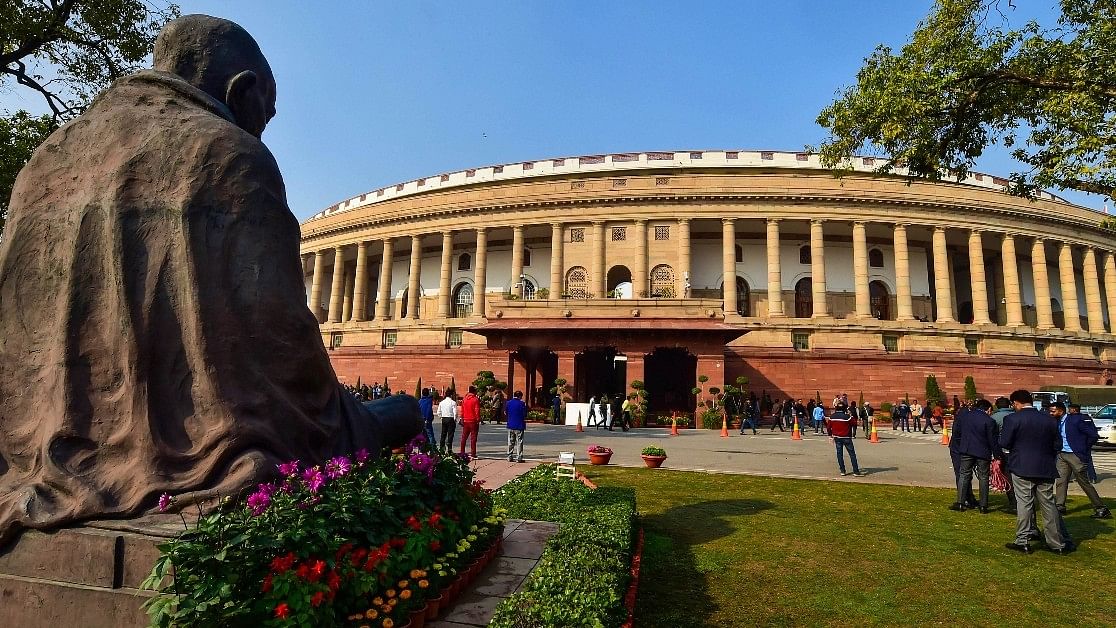
The old Parliament building.
Credit: PTI File Photo
The Government has cited in Parliament five “major impediments/imperatives" for holding simultaneous polls, including obtaining consensus of all states keeping federal structure in mind. However, in a month's time, it set up a high-level committee, which the Opposition claimed has terms of reference that “determined its recommendations”.
The Opposition said the Ram Nath Kovind-led panel is a “ritualistic exercise” whose timing they “highly suspect”. The panel on Saturday was tasked to examine the issue and “make recommendations for holding simultaneous elections in the country”.
Only on July 27, Law Minister Arjun Ram Meghwal said that the matter is now with the Law Commission for “further examination” to “work out a practicable road map and framework” for simultaneous elections following the Parliamentary Standing Committee's report in 2015 on the issue.
Meghwal had also cited the pros and cons of holding simultaneous elections in a written reply to BJP MP Kirodi Lal Meena in Rajya Sabha. BJP has promised simultaneous polls in its manifestos since 2009.
For positives, Meghwal had cited the “huge savings, avoidance of replication of effort on part of administrative and law and order machinery” as well as “considerable savings to political parties and candidates in their election campaigns” if simultaneous polls are held.
Further, he had said, asynchronous Lok Sabha and Assembly elections, including bypolls, resulted in prolonged enforcement of Model Code of Conduct with its “concomitant adverse impact on developmental and welfare programmes”.
Then he went on to cite the “major impediments/imperatives” for synchronisation for elections, including the need for amendments to Articles 83, 85, 172, 174 and 356 of the Constitution that deals with tenure and dissolution of Houses and the imposition of President's Rule.
Meghwal also highlighted obtaining consensus of all parties as one of the problems. “Having regard to the federal structure of our system of governance, it is imperative that consensus of all state governments is also obtained,” he said.
Other issues were requirement of additional polling personnel and security forces as well as additional number of EVMs/VVPATs, “which would cost a huge amount, might be in thousands of crores. Considering that the life of a machine is only fifteen years, this would imply that machine would be used for about three or four times in its life span, entailing huge expenditure in its replacement after every 15 years.”
Congress General Secretary (Communications) Jairam Ramesh said the terms of reference "have already determined its recommendations. The composition of the committee is also a total giveaway and the leader of Congress in the Lok Sabha Adhir Ranjan Chowdhury last night (Saturday) very rightly refused to be part of it."
